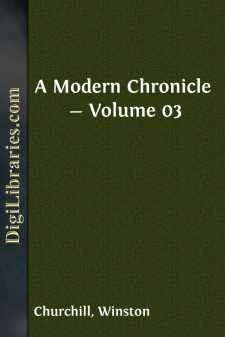Categories
- Antiques & Collectibles 13
- Architecture 36
- Art 48
- Bibles 22
- Biography & Autobiography 813
- Body, Mind & Spirit 141
- Business & Economics 28
- Children's Books 12
- Children's Fiction 9
- Computers 4
- Cooking 94
- Crafts & Hobbies 4
- Drama 346
- Education 46
- Family & Relationships 57
- Fiction 11826
- Games 19
- Gardening 17
- Health & Fitness 34
- History 1377
- House & Home 1
- Humor 147
- Juvenile Fiction 1873
- Juvenile Nonfiction 202
- Language Arts & Disciplines 88
- Law 16
- Literary Collections 686
- Literary Criticism 179
- Mathematics 13
- Medical 41
- Music 40
- Nature 179
- Non-Classifiable 1768
- Performing Arts 7
- Periodicals 1453
- Philosophy 64
- Photography 2
- Poetry 896
- Political Science 203
- Psychology 42
- Reference 154
- Religion 513
- Science 126
- Self-Help 83
- Social Science 81
- Sports & Recreation 34
- Study Aids 3
- Technology & Engineering 59
- Transportation 23
- Travel 463
- True Crime 29
London to Ladysmith via Pretoria
Description:
Excerpt
CHAPTER I
STEAMING SOUTH
R.M.S. 'Dunottar Castle,' at sea: October 26, 1899.
The last cry of 'Any more for the shore?' had sounded, the last good-bye had been said, the latest pressman or photographer had scrambled ashore, and all Southampton was cheering wildly along a mile of pier and promontory when at 6 P.M., on October 14, the Royal Mail steamer 'Dunottar Castle' left her moorings and sailed with Sir Redvers Buller for the Cape. For a space the decks remained crowded with the passengers who, while the sound of many voices echoed in their ears, looked back towards the shores swiftly fading in the distance and the twilight, and wondered whether, and if so when, they would come safe home again; then everyone hurried to his cabin, arranged his luggage, and resigned himself to the voyage.
What an odious affair is a modern sea journey! In ancient times there were greater discomforts and perils; but they were recognised. A man took ship prepared for the worst. Nowadays he expects the best as a matter of course, and is, therefore, disappointed. Besides, how slowly we travel! In the sixteenth century nobody minded taking five months to get anywhere. But a fortnight is a large slice out of the nineteenth century; and the child of civilisation, long petted by Science, impatiently complains to his indulgent guardian of all delay in travel, and petulantly calls on her to complete her task and finally eliminate the factor of distance from human calculations. A fortnight is a long time in modern life. It is also a long time in modern war—especially at the beginning. To be without news for a fortnight at any time is annoying. To be without news for a fortnight now is a torture. And this voyage lasts more than a fortnight! At the very outset of our enterprise we are compelled to practise Mr. Morley's policy of patience.
We left London amid rumours of all kinds. The Metropolis was shrouded in a fog of credulous uncertainty, broken only by the sinister gleam of the placarded lie or the croak of the newsman. Terrible disasters had occurred and had been contradicted; great battles were raging—unconfirmed; and beneath all this froth the tide of war was really flowing, and no man could shut his eyes to grave possibilities. Then the ship sailed, and all was silence—a heaving silence. But Madeira was scarcely four days' journey. There we should find the answers to many questions. At Madeira, however, we learned nothing, but nothing, though satisfactory, is very hard to understand. Why did they declare war if they had nothing up their sleeves? Why are they wasting time now? Such were the questions. Then we sailed again, and again silence shut down, this time, however, on a more even keel.
Speculation arises out of ignorance. Many and various are the predictions as to what will be the state of the game when we shall have come to anchor in Table Bay. Forecasts range from the capture of Pretoria by Sir George White and the confinement of President Kruger in the deepest level beneath the Johannesburg Exchange, on the one hand, to the surrender of Cape Town to the Boers, the proclamation of Mr....












